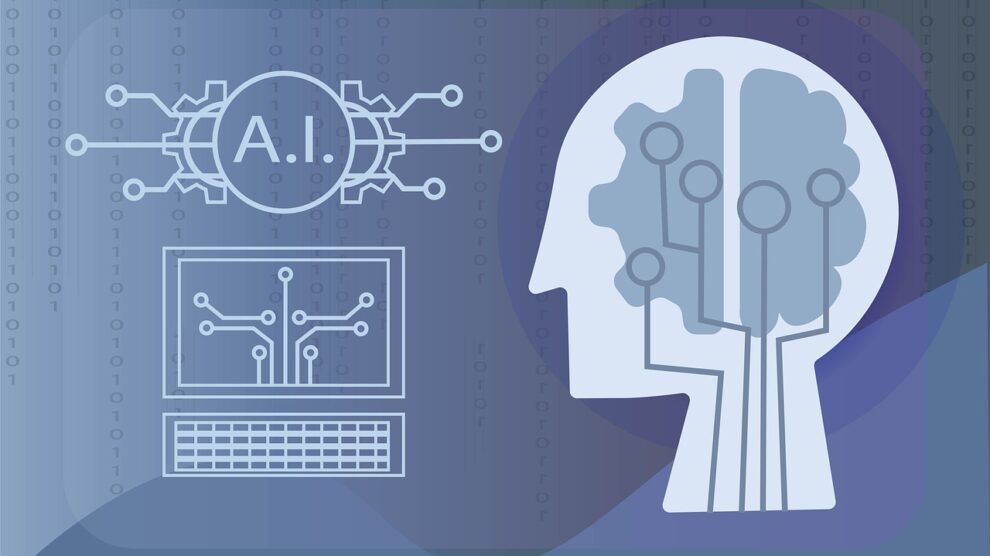The rapid rise in popularity of tools powered by artificial intelligence, or AI, has led those in many industries to question whether their jobs are at risk of being replaced by AI technology. Even those in fields that were once seen as “immune” to automation — including creative fields like writing — are seeing tools developed to assist in their process.
With that said, the inherent limitations of these AI-powered tools will hold them back from ever being a true replacement for human writers. Below, I explain why.
AI is Still Developing
Those who are experimenting with AI-powered writing tools must remember that the technology is still very much in its infancy. For example, ChatGPT — one of the most popular artificial intelligence tools on the market right now — was initially released in November of 2022, meaning that it has only been around for mere months.
In the time since the release of ChatGPT, users have complained about issues of factual inaccuracy and even insensitive language, showing that these tools are still in need of significant development and improvement before they would ever be able to be independent. Ultimately, this seems like a point that will never come.
The nature of AI technology, however, is that it will always be in its infancy. Whereas society tends to grow and evolve naturally, artificial intelligence must learn in order to grow. Although artificial intelligence is capable of processing data — and therefore learning — at much quicker rates than humans, the inputs from which AI can source this data are limited. As such, an AI’s ability to conduct research for writing is limited by the ability of humans to synthesize resources from which it can pull data.
Due to this limitation, artificial intelligence is best implemented as a tool or aid to supplement the work of a human team, rather than a one-to-one replacement. Still, it is necessary to remember that — like any tool — AI is only as good as the hand (and mind) behind it.
ChatGPT and Jasper have proven to be useful tools for writers, but their output is significantly limited. It must be edited and expanded upon by a skilled human writer to bring the content up to par.
AI Lacks Emotional Intelligence
One of the main shortcomings of AI tools is that they lack emotional intelligence. Some have claimed that artificial intelligence has the capacity to recognize emotions, but to this point, no AI that is currently commercially available has passed the Turing test. Instead, it seems that the “emotional recognition” of artificial intelligence is merely a prediction based on certain data points, such as the use of specific words or phrases that tend to be associated with a particular tone.
This lack of emotional intelligence also means that an AI’s applications are generally not customizable. A majority of the content that writers create must have a narrow focus, and AI cannot understand the nuances of the needs, wants, and expectations of individual human clients.
The “customization” of an AI tool would require “teaching” the algorithm through a substantial amount of data input over a significant period of time. For a commercially-available, non-proprietary tool, meeting these customized needs clearly isn’t practical.
Furthermore, artificial intelligence lacks — and is unable to learn — the soft skills that clients have come to expect from years of working with human writers. The near-instantaneous results provided by an AI program are a double-edged sword, as this eliminates the possibility of any collaborative process. In today’s increasingly complex business world, skills like teamwork, leadership, and communication are more important than ever, and an AI will not exhibit these qualities.
AI Requires Human Input
Artificial intelligence’s creative expression is limited by — and is entirely dependent upon — the data it receives. For example, human writers can pull from their own personal experiences in their work, whereas AI tools can only pull from the human-generated data available to them. Furthermore, AI does not have the capacity to imagine, it can only predict, meaning that it is impossible for an AI tool to synthesize anything without some level of pre-existing input.
For the foreseeable future, AI will remain dependent on external human assistance in order to function successfully. Without humans to input new data into the databases AI programs pull from, or to intervene in cases when the system crashes or becomes corrupted, artificial intelligence will not be able to function properly.
The only reason that AI works is because of human work. And without human intelligence, there cannot be any artificial intelligence.
Artificial intelligence can be an extremely powerful tool for writers to help make their work more efficient. As more and more tools commonly used by writers begin to implement AI features, it is likely that writers’ work will become better and easier.
Nevertheless, it seems unlikely that artificial intelligence will ever be able to totally replace a human team of writers. Human writers are able to provide a level of service, customization, and attention to clients that no AI program ever could.





